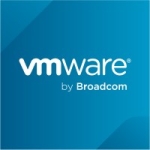What is most valuable?
The separation between the database nodes and storage cells is the key feature of Exadata. The capabilities of the storage cells, the intelligence, are excellent.
The speed is unbeatable.
Exadata was mostly for data warehouses. However, in time with a model of powerful processors in database nodes, it's also an OLTP machine. It's very good. The latest versions offer even more performance, as they have a persistent memory and a lot of features.
The usage of the internal InfiniBand Switches is a key feature in Exadata. Everything is fast due to this separation at the database level and storage level. It's intelligently designed and has a very fast connection between all of the components of Exadata.
We can use virtualization on Exadata. We can choose capacity on demand. There are a lot of new features that have turned up in the past two to four years. The solution is growing and becoming broader in its scope.
What needs improvement?
The improvement could be made on the hardware level as the habit in the industry is to go better and faster and larger with every iteration.
From the software point of view, management point of view, it's okay right now. However, I don't understand why Exadata has no database nodes with SPARC processors. Oracle has SPARC servers that are on RISC processors and are more powerful processors than Intel processors. They never do Exadata with such processors on the database nodes level. However, they tested and it wasn't very useful. I would like to see Exadata with RISC processors on the database nodes if it's possible.
For how long have I used the solution?
I've been working with the solution since 2012. It's been about nine years - almost a decade. It's been a while.
What do I think about the scalability of the solution?
You can scale the solution. You can configure it how you like and buy more cells or nodes to add to it.
How are customer service and technical support?
The technical support has been okay. We've been satisfied with the level of service.
How was the initial setup?
The initial setup isn't too complex. However, in the present, the initial setup of Exadata isn't made by Oracle partners or the client. There is an advanced ACS department, Oracle Advanced Customer Support, that handles the implementation. In this team, there are very good specialists on Exadata. These specialists from the ACS department are the guys who will install Exadata for the first time for the client.
It's not something very complex and something which cannot be done by others, however. Our team, for example, was installing Exadata. It's possible to be done by other teams with, of course, the appropriate competencies. The implementation sits somewhere between simple and complex. The machine is complex. We cannot set up a machine like this with more components and different components like a laptop, for example.
What about the implementation team?
There is a specialized team that handles the implementation for the client.
What's my experience with pricing, setup cost, and licensing?
I don't evaluate the fees involved in using the solution. It's too big. However, it's my understanding that you need to pay for the hardware, the nodes, and the cells. That said, you can configure it however you want. You can easily buy and increase the capacity in only the nodes or only the cells if you prefer. It's worth the money you spend. The value is there.
Which other solutions did I evaluate?
I've looked at other options. For a data warehouse, it's a better solution. It's better than Teradata, for example, or other complex machines from the competitors. Migrating data warehouses from other infrastructures to Exadata has a good success rate. I wouldn't say that it is the better solution for an OLTP system, however, for an OLAP system, it's a better option.
What other advice do I have?
We've been Oracle partners for around ten years or so. I'm a project manager, and not overly technical.
We don't have Exadata in our company, however, we have Exadata via a client. The current company where I work is the first company in Romania to sell Exadata in Romania. There are a number of Exadata solutions sold in Romania - which is why my colleague has achieved past competencies and certification in Exadata machines. They are very good, and they are delivering the present services on Exadata. I manage the projects where they deliver services on Exadata only for the customer, not in our company.
I'd advise users to consider the solution. You pay more money on the machine, however, you pay less for the licenses. On top of that, you have enough room to put a lot of data there. You can virtualize some machines and you put items on the application level, however, I don't recommend this.
If you already have separate machines, and you have licenses for all these machines and you want to put new hardware in place, it's better to put Exadata in place instead of a lot of other machines. That way, you can consolidate the database here and you will pay less on database software licenses.
I'd rate the solution at a ten out of ten. I've been very satisfied with the product overall.
Disclosure: My company has a business relationship with this vendor other than being a customer. partner
















